Subscribe now and get the latest podcast releases delivered straight to your inbox.
Marketers are Becoming Marketing Coaches. What Does This Mean for the Future of Agencies?

By Chris Marr
Mar 15, 2023

Recent research is supporting something I’ve been feeling for a few years now: companies large and small are taking care of more and more of their marketing needs in-house.
This means they’re building (or expanding) internal marketing teams and changing the way they work with agencies.
Many SMBs that have never hired a marketer before are choosing a different path: cutting ties with their ‘do-it-all-for-you’ agency and hiring people in-house to take care of their content marketing or social media accounts among other things.
For larger companies that already have established marketing teams this means adding headcount and bringing specialists onto their staff.
The result of this seismic shift is profound. Agencies are increasingly serving as consultants, rather than implementers.
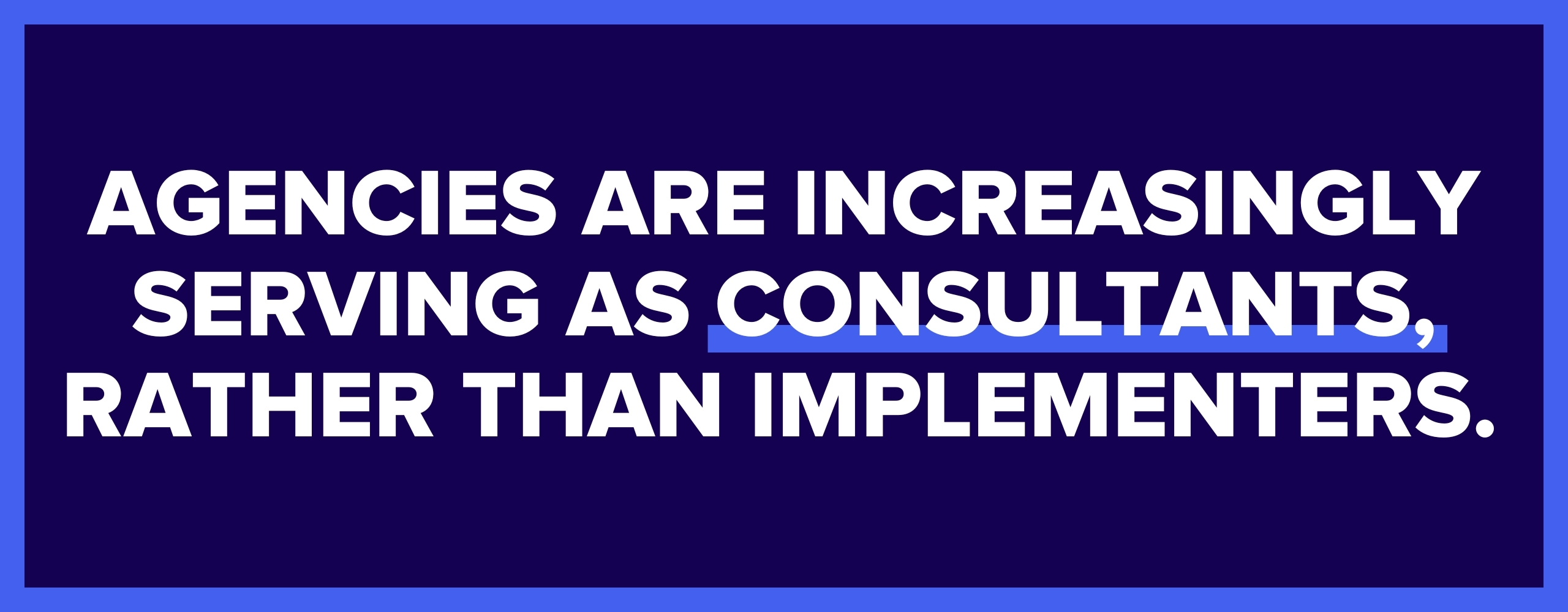
But while this change might generate headlines and aftershocks, the result stands to benefit both clients and agencies.
What the research says
For several years now, Digiday has partnered with Bannerflow to survey top marketing leaders from a range of industries. The most recent report, released in 2022, documented a continued trend toward in-house marketing.
The survey looked at 400 companies, from the ultra-small (with single-digit employee headcount) to enterprise-level with more than 500 employees). Industries included entertainment, retail, financial services, communications, and more.
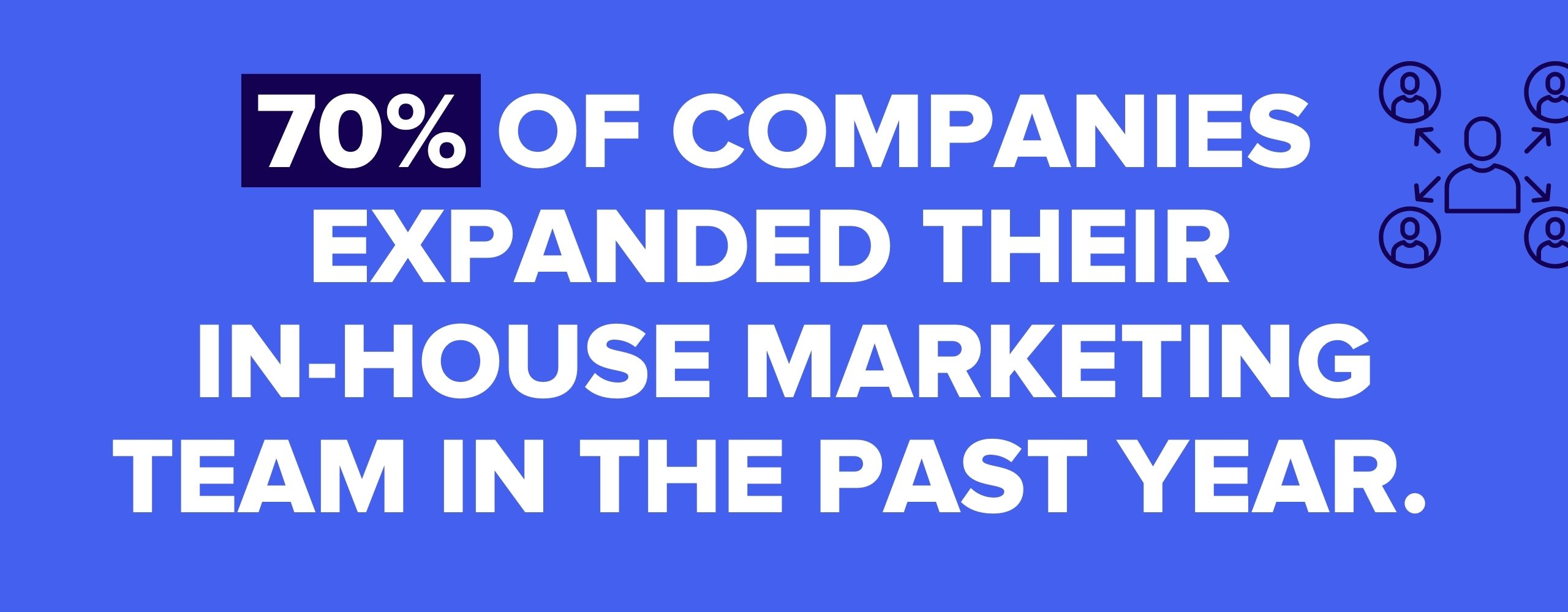
The general findings of the report were this: About 70% of companies surveyed reported they increased the size of their in-house marketing team in the past 12 months.
In many cases, these recent increases are building on a steady trend over the past few years. In other words, these teams have been growing for some time.
Why are companies taking marketing in-house?
So, why are businesses choosing in-house over agency? As I see it there are a number of reasons:
- Greater control and transparency. Working with an in-house team means the business is more connected to the final product. No more limited revisions, no more expensive meetings. If the leadership team needs something from marketing, it’s just down the hall.
- Faster turnaround. When a marketer isn’t juggling multiple clients, you can expect to get work out the door more quickly. In the age of content saturation, getting more content out the door is better than being limited to a contracted amount from your agency. A large majority of respondents in the Bannerflow survey reported an increased output when expanded their team in-house.
- Lower quality-threshold. I know that sounds bad, but let me explain. It’s not that in-house marketers are going to produce low-quality work. It’s that for a long time there was a very high threshold for quality in marketing materials. That’s less of an issue every year. Social media has lowered the bar, making less-polished work the norm. You don’t need a full-suite production team to shoot your TikTok videos. In fact, it’s better if you don’t.
- Better return on investment. According to the research from Bannerflow, 76% of companies reported better ROI from in-house marketing teams.
- Greater creativity and innovation. Because in-house marketers focus on only one client, they’re more able to get creative and problem-solve the company’s challenges. Instead of a ‘this worked with my other clients’ approach they might get from an agency, there is more investment in the company’s success when its marketers are in-house.
- Access to an incredible talent pool. Lastly, companies are taking marketing in-house because they can. In the age of remote work, organizations are no longer bound by geography. They can assemble a crackerjack team from anywhere, which was formerly impossible.
These are compelling arguments for in-house marketing, but building internal teams comes with some drawbacks as well.
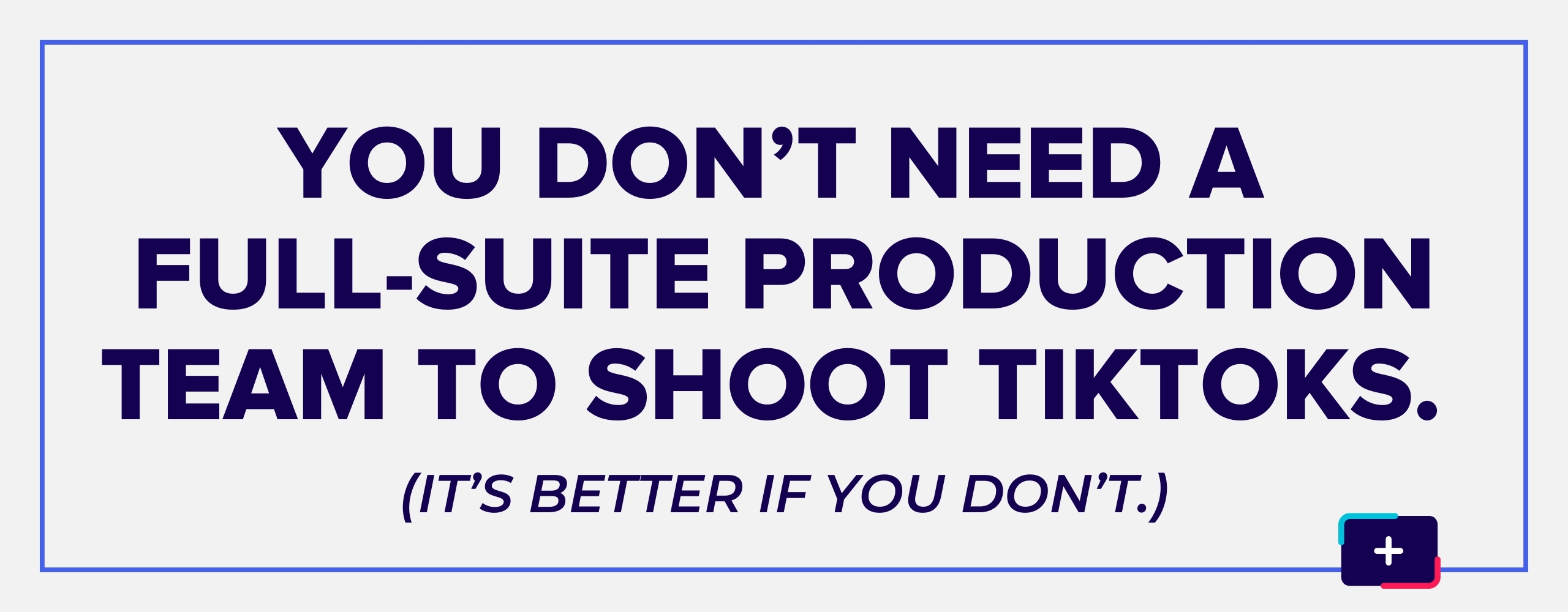
They’re slower to get started and can be more expensive up front. It’s also a lot harder to fire a sub-par employee than it is to fire an agency, too.
What this means for agencies
Does this mean that agencies are becoming obsolete? No. But this is a bellwether not to be ignored.
When you pair this data with other recent studies that have shown nearly 40% of businesses are planning on firing their agency in the next six months, you start to get a sense of a growing trend of dissatisfaction.
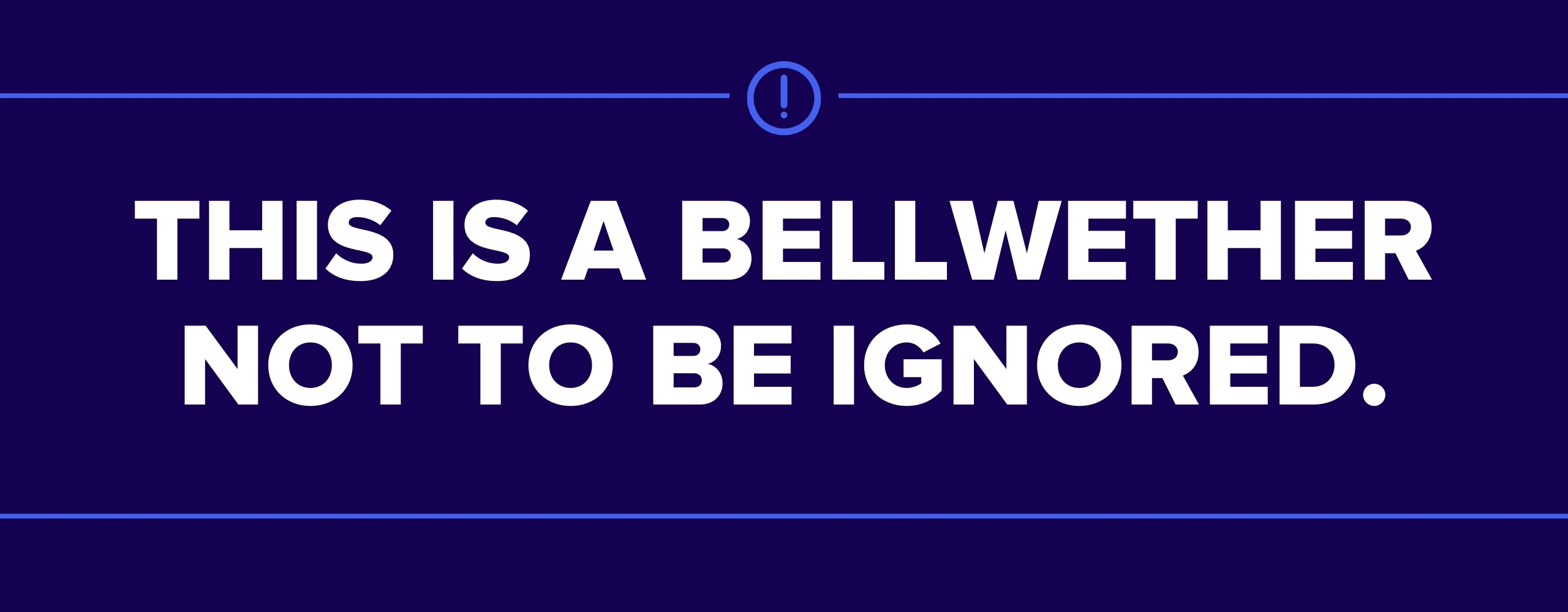
The question is, how will agencies adapt to this new reality?
Your move, agencies
Agencies should be feeling the ground shifting under their feet. Clients are changing — and agencies need to adapt to keep up. Otherwise, they’ll be fighting over an ever-shrinking pool of businesses content to do things the old way.
How do agencies stay relevant in this changing landscape? How can they continue to provide value as their clients’ needs shift?
Here’s how they can respond.
Embrace the change
The first step is to recognize the shift and accept it. This doesn’t mean agencies need to throw out their old business model — it means they should be adding to it. In-house marketing teams need training, coaching, and consulting, both in terms of strategy and execution.
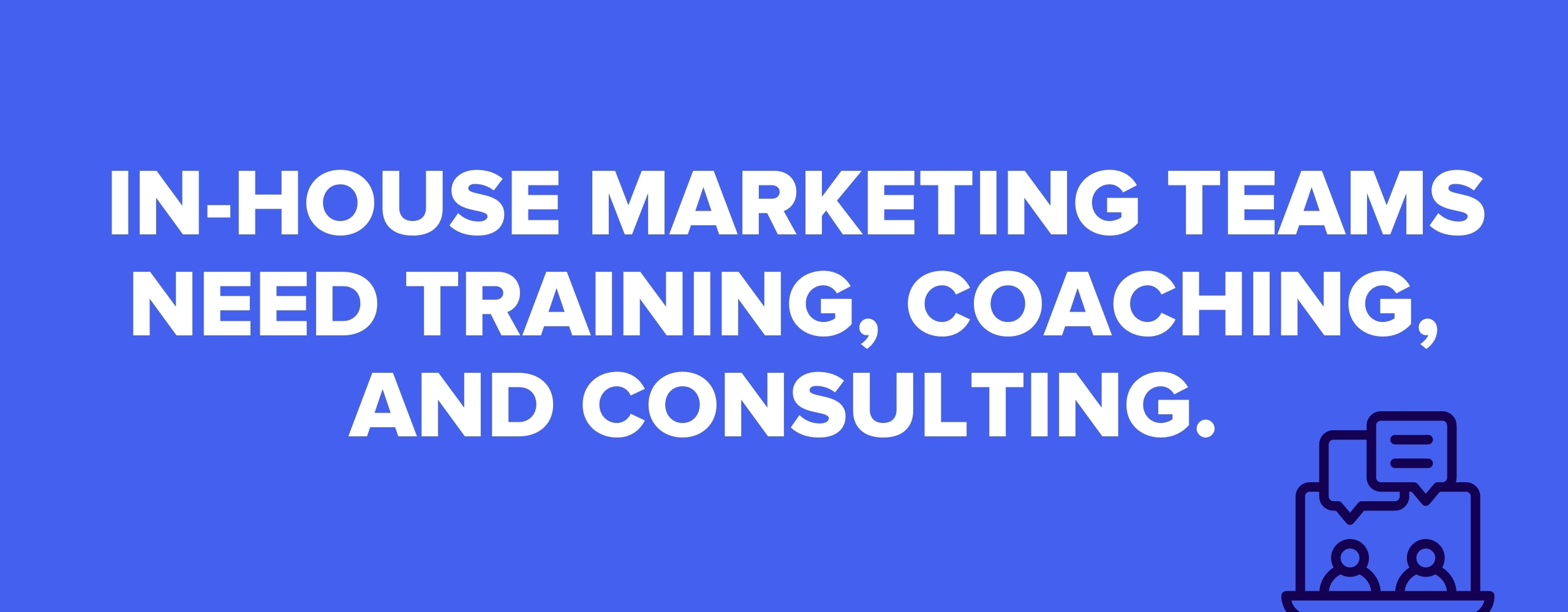
Agencies can offer expertise that is invaluable to teams setting out on their own.
For existing clients:
Offer to help train people at their company to implement some of the strategies you develop together. With a little bit of instruction, there’s no reason businesses can’t handle things like social media, email marketing, and content creation.
You can empower them to take control.
In doing so, are you signing away the future of your business? No.
We’ve found that companies enjoy having coaches and strategists on retainer to help them set course. While the contracts might not be as big, the work is much less taxing, so you can serve more clients at once.
For new clients:
From the onset, explain that you’ll be able to help them hire, onboard, and train an internal marketing team that will be more efficient and effective than a traditional agency.
Craft your messaging so that potential clients see marketing training as integral to their long-term success.
You’ll come across as forward-thinking and dynamic, which will separate your messaging from the thousand other agencies the client might consider.
Focus on your clients’ long-term education
Get your crystal ball out and look into the future. What will your clients be needing from your agency in two years? How about five years?
The Bannerflow report shows us that businesses are looking to take control of their marketing. Rather than fighting it (see #1), help them get there.
Don’t hold onto your expertise in the hopes that it will make your clients need you forever. Instead, share your knowledge.

If your clients want to learn how to do Facebook ads, offer to teach them. If they want to learn to perform technical SEO audits, marketing automation, or video production, teach them how. Invest in their long term success to guarantee your own.
Preparing your agency for the future
A friend of mine has been a Google Ads expert for nearly 20 years, working with clients on search and YouTube ads.
While his business remains strong, he’s told me that the expertise required to run an effective pay-per-click campaign is getting less and less each year.
With every new update, AI and platform improvements make his job easier — and also lower the barrier for entry into the paid ads space.
The internet is the great democratizer of marketing, and this new shift towards in-house teams is another step in that direction.
With a little training, companies can handle their marketing on their own. To ready your agency for long-term success, embrace the shift toward becoming strategists and consultants. It’s what your clients most need from you right now.
To learn more about this shift, check out our free course: Building a Scalable, Successful Agency


Order Your Copy of Marcus Sheridan's New Book — Endless Customers!